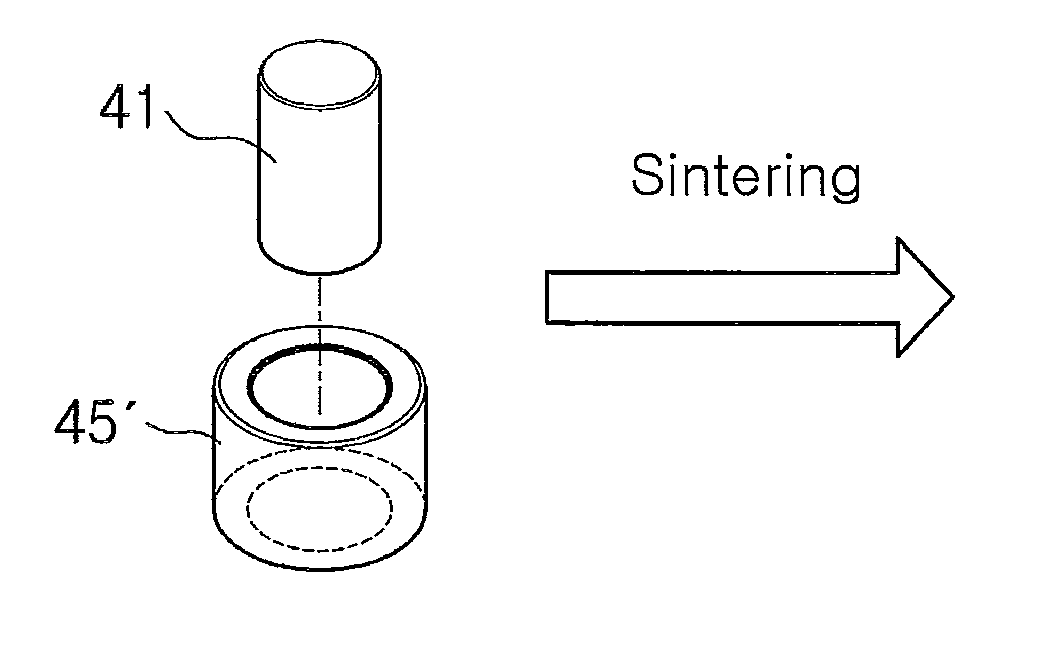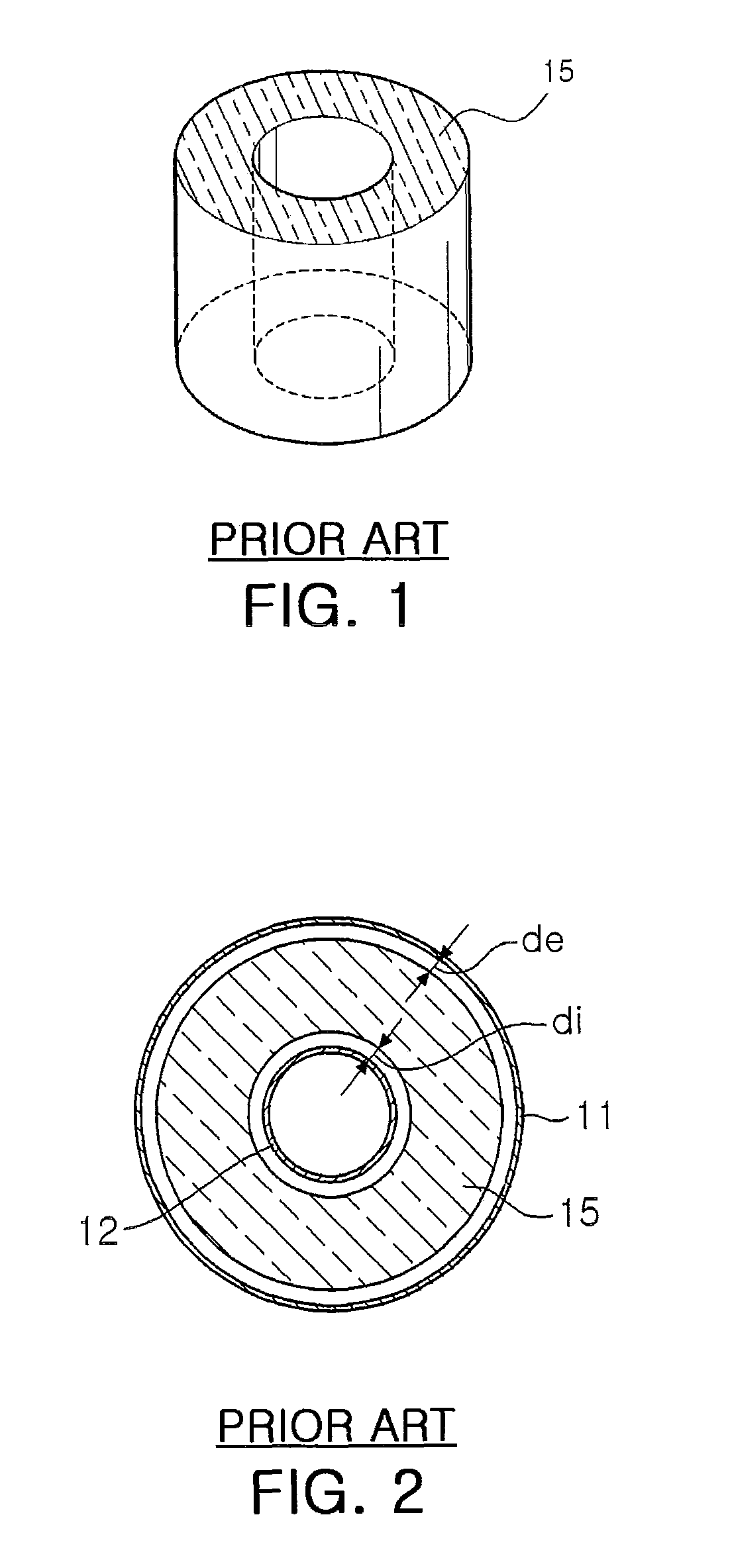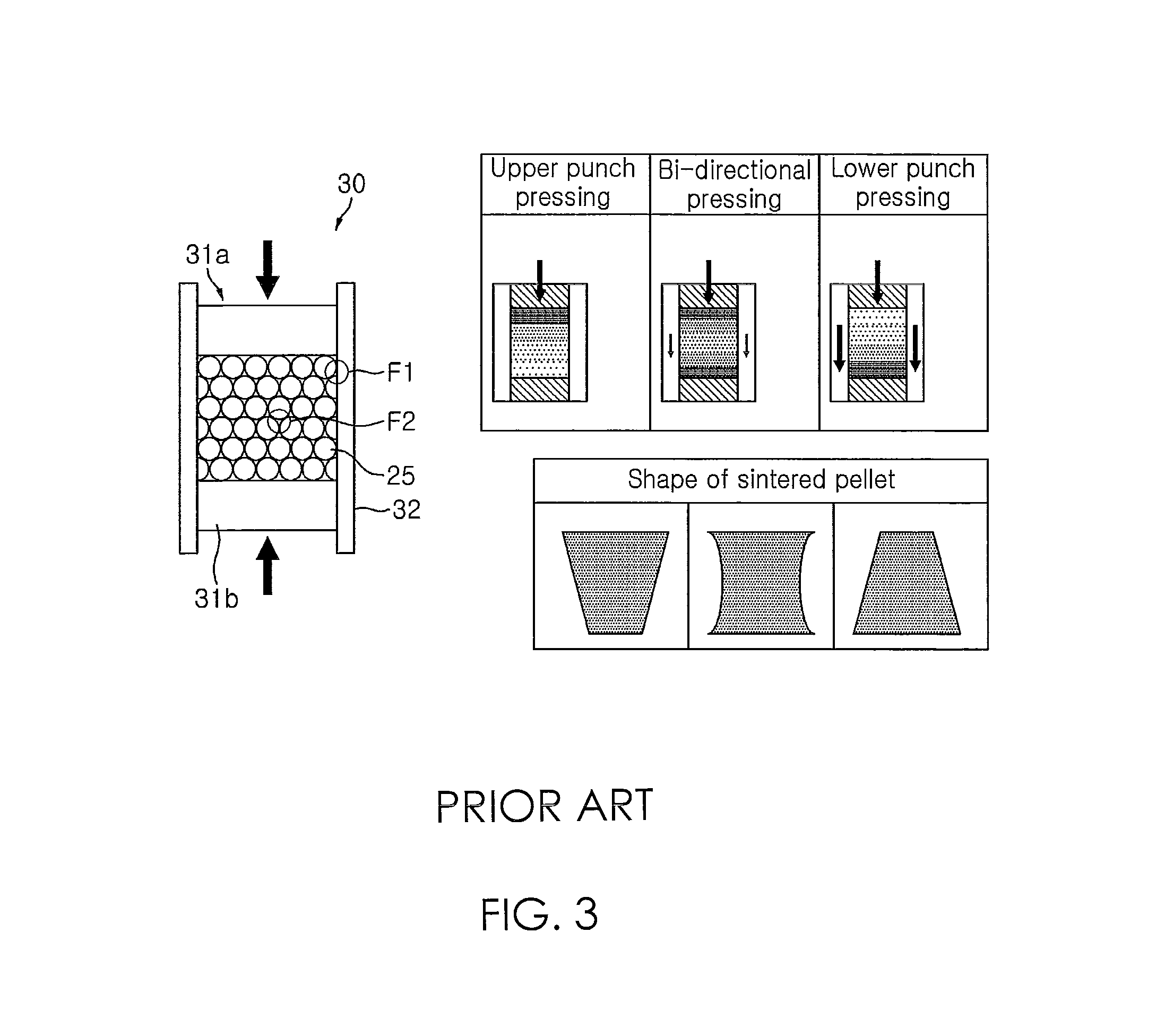Method for preparing sintered annular nuclear fuel pellet
a technology of nuclear fuel pellet and annular nucleus, which is applied in the direction of nuclear elements, manufacturing tools, greenhouse gas reduction, etc., can solve the problems of affecting the performance of commercial nuclear fuel rod in terms of temperature and heat flux, affecting the safety of nuclear fuel rods, and degrading the heat transmission. to potentially damage the nuclear fuel rod
- Summary
- Abstract
- Description
- Claims
- Application Information
AI Technical Summary
Benefits of technology
Problems solved by technology
Method used
Image
Examples
embodiment
[0072]IDR-UO2 powder was pre-compacted under 0.1 ton / cm2. Pre-compacted lump of UO2 powder was crushed and allowed to pass through a 50-mesh sieve to fabricate granules. 0.3 wt % of zinc state was added as a lubricant to the fabricated granules, which were then mixed in a tubular mixer for 30 minutes.
[0073]The thusly mixed granules were charged (i.e., loaded) in a double acting uniaxial press and pressed with a pressure of about 4 ton / cm2 to fabricate an annular green body. The inner and outer diameters of the annular green body were measured at every interval of 1 mm along the length of the green body by using a contact type three-dimensional measurement machine. The density of the annular green body was an about 54 percent of the theoretical density.
[0074]The annular green body with an yttria-stabilized ZrO2 rod having an outer diameter of 10.156 mm inserted therein was sintered in a carbon dioxide atmosphere for four hours at a temperature of 1,250 degrees Celsius, and then reduc...
PUM
| Property | Measurement | Unit |
|---|---|---|
| temperature | aaaaa | aaaaa |
| temperature | aaaaa | aaaaa |
| length | aaaaa | aaaaa |
Abstract
Description
Claims
Application Information
 Login to View More
Login to View More - R&D
- Intellectual Property
- Life Sciences
- Materials
- Tech Scout
- Unparalleled Data Quality
- Higher Quality Content
- 60% Fewer Hallucinations
Browse by: Latest US Patents, China's latest patents, Technical Efficacy Thesaurus, Application Domain, Technology Topic, Popular Technical Reports.
© 2025 PatSnap. All rights reserved.Legal|Privacy policy|Modern Slavery Act Transparency Statement|Sitemap|About US| Contact US: help@patsnap.com



